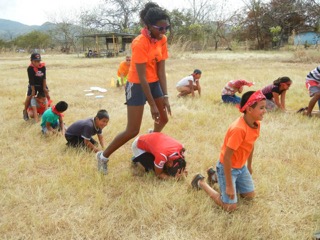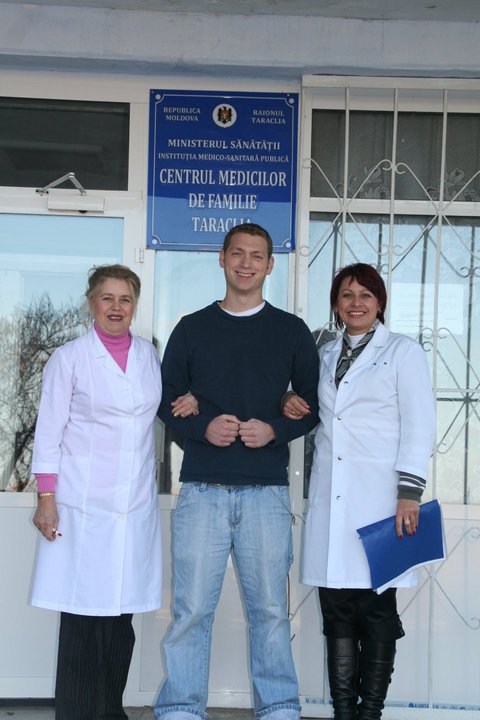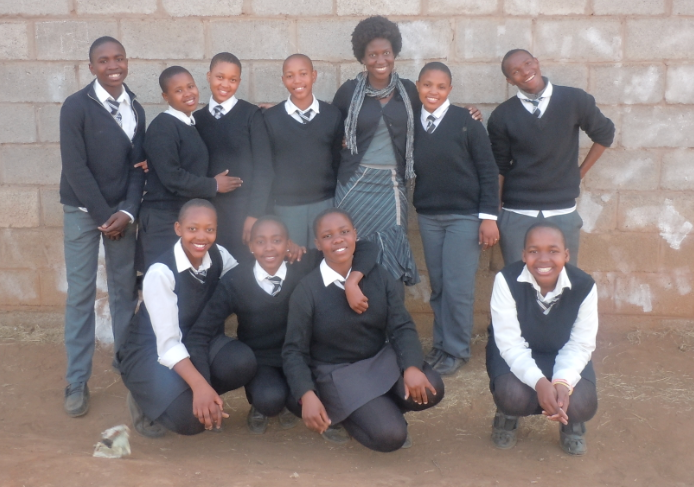John F. Kennedy founded the Peace Corps in 1961 with the goal of sending volunteers on two-year missions to aid developing nations while simultaneously helping Americans understand foreign cultures. Since then, more than 220,000 Americans have traveled to 140 countries to assist with projects ranging from education to agriculture to technology. The Peace Corps provides volunteers with housing and a stipend to cover food and incidentals, allowing them to live with the people in their community.
Because much of the work done through the Peace Corps focuses on social and economic development, volunteers often leave with a drive to continue helping their host country from a policy level as a way to enact large-scale change. Over the years, many of these volunteers have enrolled at Princeton University's Woodrow Wilson School of Public and International Affairs after their tour with the Peace Corps where they have learned how to apply their grassroots knowledge to the policy spheres necessary for global development.
Aja Kennedy
Aja Kennedy MPA ’17 didn’t consider the Peace Corps until she attended a career fair at her college. Immediately interested, she took as much information as she could find and set her sights on this alternative post-graduate plan. By the time she graduated, Kennedy was ready to get out of the classroom and into the real world.
“I had been in classrooms talking about the world’s problems a lot, but I wasn’t doing anything about it,” Kennedy said. “I wanted to get my hands dirty and so that’s why I joined the Peace Corps.”
In February 2013, Kennedy traveled to Panama to work as an education volunteer for a K–12 School. In addition to her time as a teacher, Kennedy also worked on projects surrounding youth and women’s development, women’s health and HIV awareness.
As an undergraduate, Kennedy took an interest in global poverty and studied development. However, what she learned in the classroom would soon pale next to the lessons learned in the Peace Corps.
“I do appreciate those classes but I think I learned a lot by seeing those ideas in a real-world context when I went to the Peace Corps,” Kennedy said. “I saw the challenges of working in grassroots development as well as the bureaucracy and red tape that you face when trying to get projects off the ground.”

While in the Peace Corps, Kennedy met diplomats who held public policy degrees, which piqued her interest in graduate school. She wanted to learn about the effects American policies might have overseas and for that, the Wilson School seemed like a natural fit.
“After I had been in the field, I realized that if I wanted to make a sustainable contribution, I would need to do it on the policy level,” Kennedy said. “As an American citizen coming into a developing country, you need to have skills on a policy level to analyze programs and diagnose issues and recommend effective intervention. That requires some level of policy analysis. After I found out what a public policy degree was, I thought ‘this is perfect, it’ll teach me exactly what I need to know.’”
After finishing her volunteer work, Kennedy spent the summer before coming to Princeton interning on Capitol Hill with Sen. Harry Reid (D-Nev.). This experience prepared her for the transition from field work to graduate work, while teaching her how the Senate works.
Now, Kennedy plans to work as a foreign service officer for the State Department, as part of the Charles B. Rangel International Affairs Program, a collaborative effort between Howard University and the U.S. State Department that prepares young people for careers as diplomats in the foreign service.
Being a Returned Peace Corps Volunteer has not only given Kennedy a different background than many of her classmates, it has also given her a passion for humanitarian work.
“The Peace Corps gives you a different perspective to be able to bring into a place like Princeton,” Kennedy said. “I have a more well-rounded perspective of how I might go about saving the world and solving the world’s problems.”
Jeremey Taglieri
Jeremey Taglieri MPA ’17 also found himself in the Peace Corps after becoming disaffected with the institutionalized nature of academia. As a political science undergraduate, Taglieri enjoyed his studies, but was tired of what seemed to be “all talk” and “no action.”
“I grew dissatisfied with the fact that we spent all this time talking about the world’s problems but not actually doing (anything about) them,” he said.
After getting involved with public service his junior year of college and then spending a year with AmeriCorps, Taglieri joined the Peace Corps, hoping to broaden his world views.
Peace Corps volunteers do not select their own destinations, and Taglieri didn’t initially envision spending two years in Moldova, a landlocked country bordering Romania and Ukraine that used to be part of the Soviet Union. Taglieri will never know for sure, but he suspects that he was placed there because he took Russian classes in high school. However, his Russian skills had become quite weak by the time he arrived in Moldova. Still, after his time there as a community organization volunteer, not only did Taglieri’s Russian language skills improve, but he found himself seeking a career in post-Soviet state development.
While in Moldova, Taglieri worked in the aid and development of hospice organizations, attempting to extend funding and create sustainable programs. After the Peace Corps, he spent two years in Washington, D.C., as a program coordinator for the National Hospice and Palliative Care Organization, the largest nonprofit organization in the United States representing hospice and palliative care. While there, the organization developed hospices in sub-Saharan Africa, cementing Taglieri’s interest in global health.

While working in both Moldova and D.C., he learned about different master’s degrees in public affairs and public policy. At the time, Taglieri had planned to enter law school, but the public affairs and public policy programs offered the direct policy knowledge needed to effect global change. The Wilson School particularly stood out as being both practical and consistent with Taglieri’s interest in the post-Soviet world.
“I wanted to continue studying international development, particularly in post-Soviet states,” Taglieri said. “I also really wanted to keep working on my Russian. The Woodrow Wilson School is one of the only schools that allowed me to do that.”
The extensive internship programs also attracted Taglieri to the Wilson School. He spent the summer of 2015 in Kurdistan, Iraq, as a UNICEF intern, where he was able to work at a fairly high management level. These combined Wilson School and Peace Corps experiences make Taglieri confident he will one day be able to direct a program aiding in post-Soviet global health, his ultimate career goal.
“I’m trying to be a practitioner,” he said. “I want to be running the programs. I want to be actively helping people and not just thinking about more academic solutions.”
Taglieri hopes to use both his degree and Peace Corps knowledge to offer balanced ideas about aid in the developing world.
“When you’re working at the level of a Peace Corps volunteer, you’re in the field, and you are on the ground with beneficiaries,” Taglieri said. “It’s very, very hard to understand what is going on several levels above you—how does the money get divided up from international development organizations? What are the priorities? And how do you talk to donors? Coming to Princeton, talking to the professors who have lots of experience and completing an internship where you go work for a summer with UNICEF, gave me that perspective of what goes on at those higher donor levels and where the community is in terms of its priorities.”
Patrick Linn
Patrick Linn MPA ’16 had always dreamt of joining the Peace Corps. He knew it would afford him the opportunity to live and work in a community that otherwise wouldn’t be accessible. He applied for the Peace Corps in 2009, but waited a few years before departing to ensure that he and his wife could volunteer in the same location. The wait was well worth it.
Linn and his wife worked in the Kedougou region of southeastern Senegal, aiding in environmental and community health. They trained the trainers who would go on to educate local gold miners about mercury reduction programs. Linn worked on a very data-oriented research project, which taught him about the importance of not overstating claims. With development, Linn explains, comes a healthy amount of skepticism.
“It’s easy to think that a program or policy can be scaled up and used in any context, when in actuality, its initial impact was shown in a very specific context,” Linn said. “I’ve learned the notion of skepticism and a desire to see rigorously developed evidence justifying a program as well as a hesitancy to allow just any program through.”
As he prepares for a career as a public policy fellow, Linn carries with him lessons from the Peace Corps.
“‘Do no harm,’” Linn said, “is a fundamental principle of any development work.”
Tishina Okegbe
Tishina Okegbe MPP ’16 also found her way to the Peace Corps as a means to find more fulfilling work. During her third year of a doctoral program in molecular biology, Okegbe realized that she needed a job with a more tangible impact on people.
“I was spending a lot of time in the lab, a lot of time looking down a microscope and a lot of time doing dissections of very small parts of a fly’s body,” Okegbe said.
As she considered her passions for helping others and traveling, Okegbe looked into jobs in policy and aid. The Peace Corps offered the perfect marriage of travel and humanitarianism while providing the necessary experience for well-informed policy making.
Okegbe worked as an education volunteer in Lesotho, a landlocked country in the southern part of Africa. Lesotho has one of the world’s highest HIV rates, and Okegbe spent much of her time promoting HIV awareness. She helped organize a festival that used art and performance to get the more than 100 students attending engaged in understanding HIV.
Okegbe’s fellowship through the American Association for the Advancement of Science affords her the opportunity to contribute her scientific and policy knowledge to the federal government. Before coming to Princeton, Okegbe spent a year working for USAID’s global health office and her time at Princeton has given Okegbe the well-rounded education she needs to become an effective policy-maker.
“I’ve learned a lot and I’ve met a lot of people,” Okegbe said. “It’s different from my previous graduate school experience. The program is great and I’ve had such a great time.”

Okegbe’s varied background helps her to appreciate what she as a student can now bring to the Princeton classroom setting, and eventually to the federal government.
“I think all my experience together has made me very well-rounded,” she said. “I’ve had exposure to academia, the technical and theoretical knowledge, I’ve gained practitioner knowledge and then I’ve had experience at the grassroots level.”
Her time both abroad and in the classroom have led her to be both idealistic enough to believe that her efforts can make a difference and realistic enough to understand that change is never an overnight process.
“Development work is hard,” she said. “Not that I thought it would be easy, but there are lots of problems and there are very smart people who are passionate and engaged and are working hard to solve the problem, but there are still a lot of problems. We need to always have that realization in the back of our minds when we try to do development work to be open and honest about the difficulties we will encounter. But that doesn’t mean we shouldn’t try.”
Okegbe, who plans to build a career in policy, thanks the Peace Corps for not only changing her career path, but also teaching her more about herself than she ever thought she could know.
“One of the taglines they tell us when we begin is that ‘Peace Corps is the toughest job you’ll ever love’ and it’s so true. It was two of the most difficult years of my life, but throughout the time that I was there, I grew so much as an individual. I learned that I have the capacity to handle much more than I thought; I could be much more compassionate than I realized; and I really had the opportunity to make a difference in my school with some of my students, who I still keep in touch with. And that is something to me that’s priceless.”

